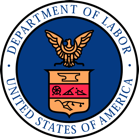 The Senate Health, Education, Labor and Pensions Committee recently began its hearings on Thomas Perez’s nomination to be Secretary of Labor. Many are asking questions about Perez’s record, but our Executive Director writes in POLITICO that Senators should be very interested in his and the Labor Department’s agenda:
The Senate Health, Education, Labor and Pensions Committee recently began its hearings on Thomas Perez’s nomination to be Secretary of Labor. Many are asking questions about Perez’s record, but our Executive Director writes in POLITICO that Senators should be very interested in his and the Labor Department’s agenda:
The Senate’s HELP Committee should have no shortage of questions Thursday for Thomas Perez, the president’s nominee for secretary of labor. They should start by asking him whether he plans to continue the Department of Labor’s increased pro-union activity — or perhaps “activism” — from the past four years.
Since President Obama took office, despite having little to do with unions (the National Labor Relations Board has most of the responsibility) the Department of Labor has enacted several pro-union measures. In addition to considering a proposal that the American Bar Association has written could “chill and seriously undermine the confidential client-lawyer relationship,” the Labor Department has reduced its investigations into union corruption and reduced union disclosure rules. Our Executive Director explains:
The most notable change in policy has been the decrease in the department’s investigations into union financial reports. Intended to ensure that unions are faithful to the federal statutes that protect members from corrupt practices, DOL’s financial and compliance audits plummeted by 38 percent between 2009 and 2011. The average of 736 audits between 2005 and 2009 reached a disturbing low of only 461 by 2011.
Lest people be left wondering where the new DOL stood, the bureaucrats charged with ensuring that America’s unions are fair and honest also axed the regulations requiring union officials to disclose potential conflicts of interest. It’s no surprise why the updated LM-30 perished so quickly: The AFL-CIO had previously tried to stop the regulation’s implementation via a lawsuit.
Unions have made every effort to avoid transparency and reform, and the re-election of President Obama for which unions spent tens of millions of dollars ensures that the Labor Department will likely keep that away for the time being. But the Employee Rights Act offers a way forward through the people’s representatives to ensure that administrative meddling does not reduce the responsiveness of unions to their members.



